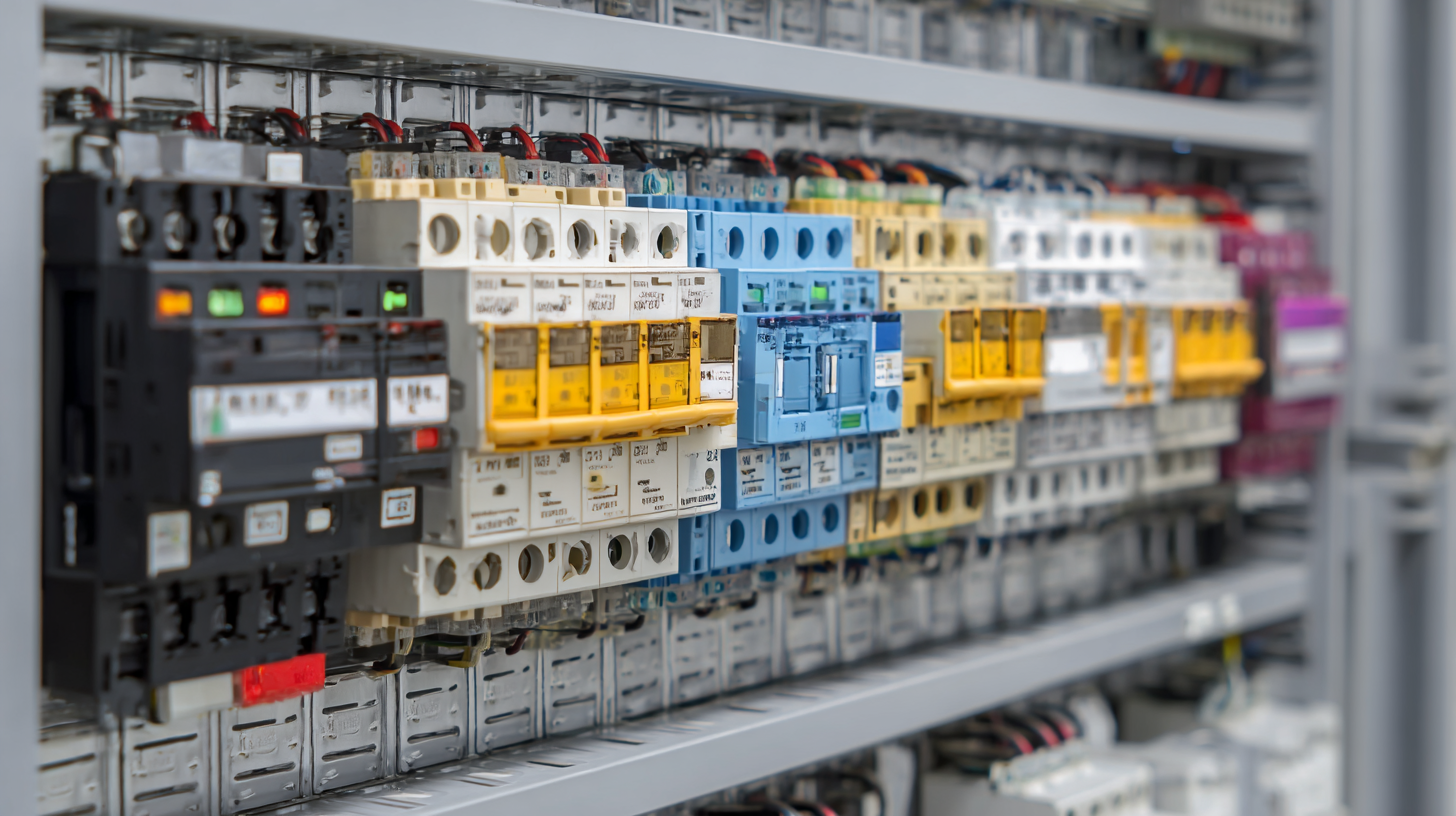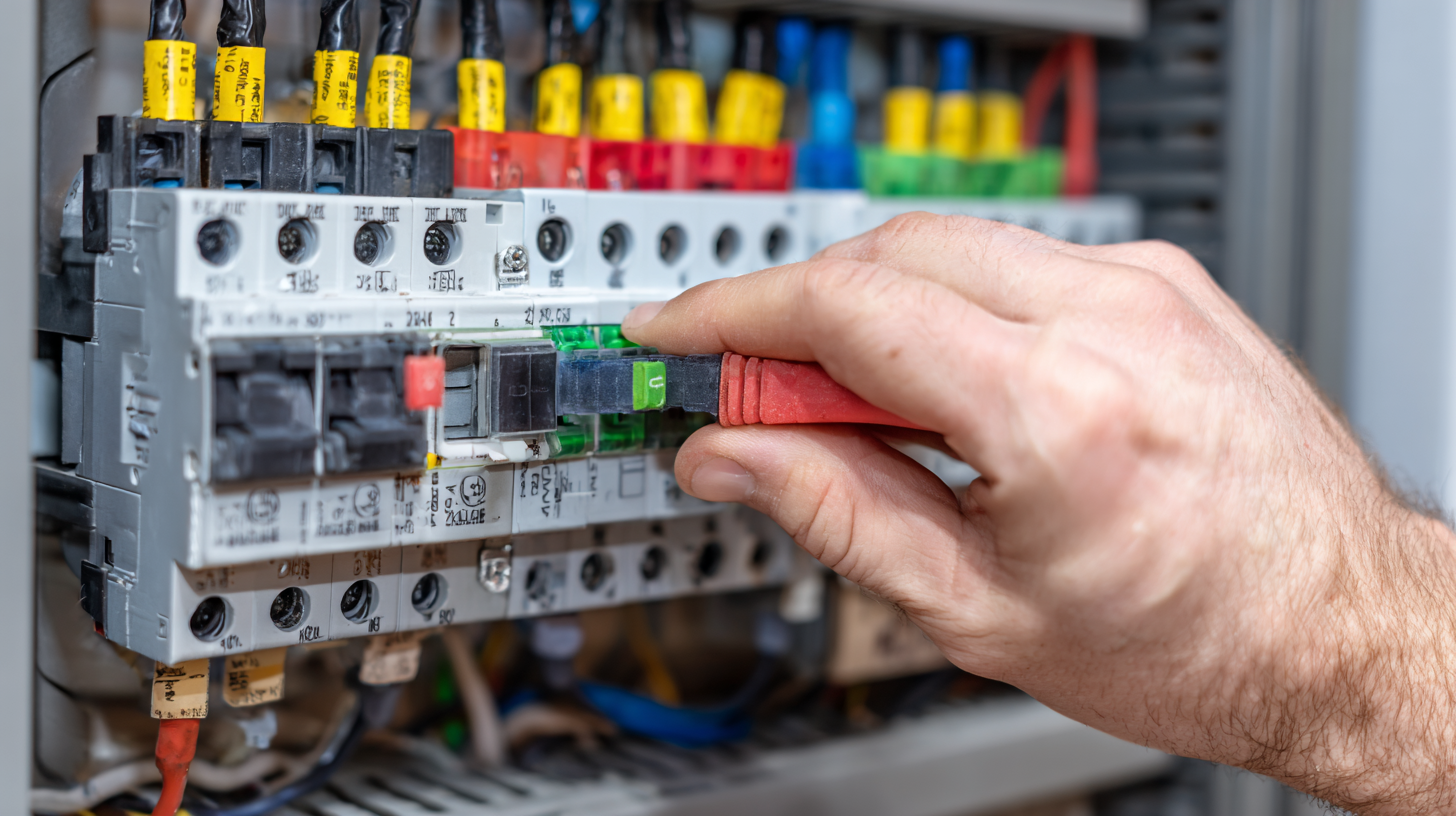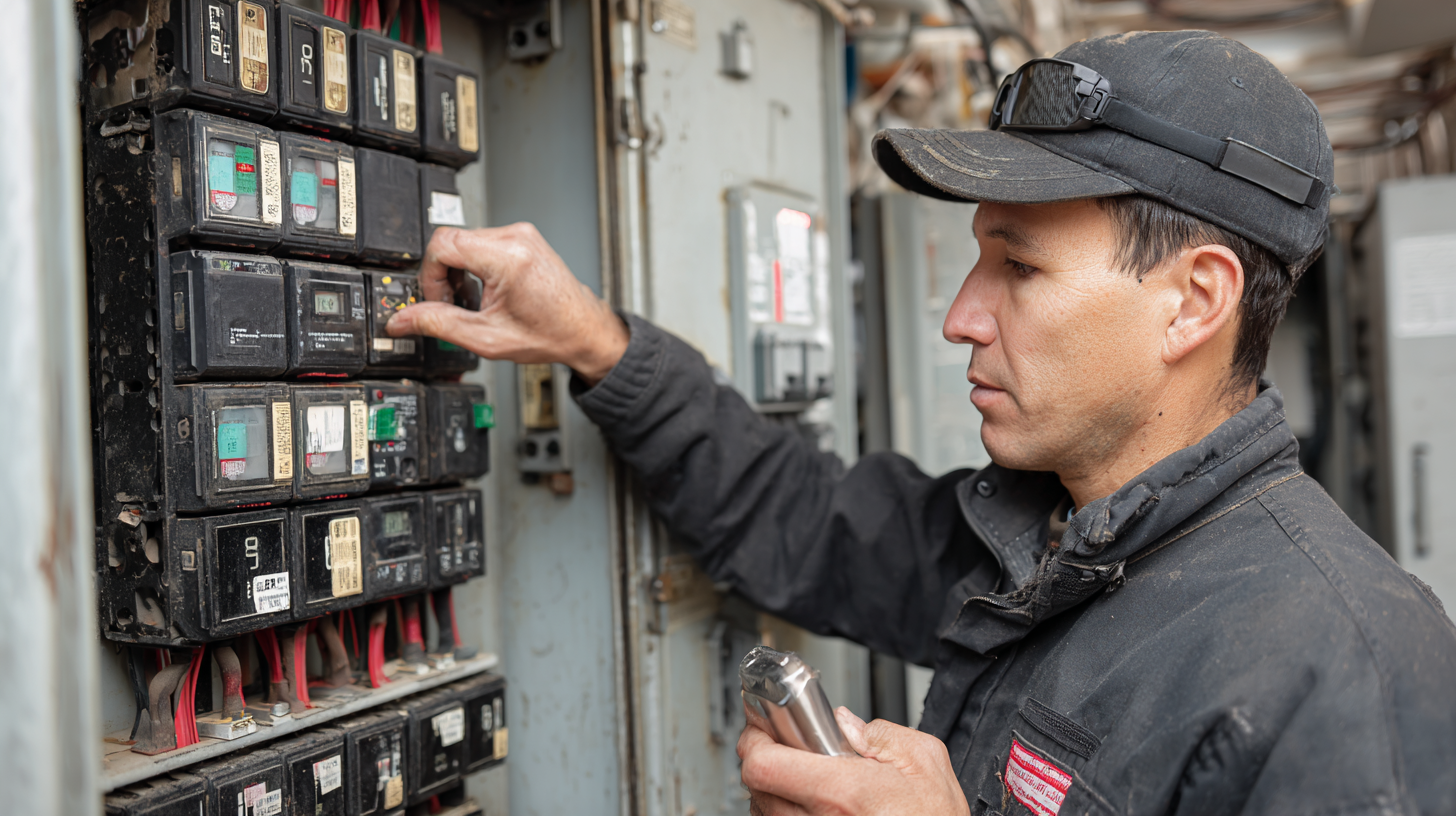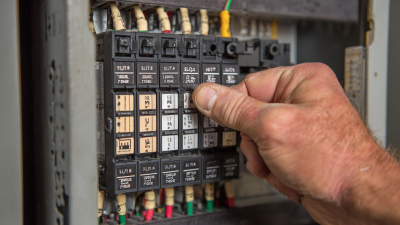Understanding Power Circuit Breakers: Key Features, Benefits, and Maintenance Tips for Home Safety
In today's world, the safety and reliability of electrical systems are paramount, making power circuit breakers an essential component in every household. These devices play a critical role in protecting your home from electrical overloads and faults, ultimately preventing potential hazards such as fires and equipment damage. Understanding the key features and benefits of power circuit breakers is crucial for homeowners looking to enhance their electrical safety. Furthermore, implementing proper maintenance tips can extend the life of these protective devices and ensure their functionality when it matters most. This article will delve into the fundamental aspects of power circuit breakers, highlighting their importance in maintaining a safe living environment while providing practical advice for optimal performance and upkeep.

Understanding the Importance of Power Circuit Breakers in Home Electrical Safety
Power circuit breakers play a crucial role in maintaining electrical safety within homes. They act as protective devices that automatically interrupt the flow of electricity in case of an overload or fault, preventing potential hazards like electrical fires or damage to appliances. Understanding how these breakers function is essential for homeowners, as they are the frontline defense against electrical emergencies.
Additionally, the benefits of having reliable power circuit breakers extend beyond mere safety. They provide peace of mind, knowing that your home is equipped to handle unexpected surges or faults. Regular maintenance and timely inspections of these breakers can enhance their reliability and effectiveness, helping to ensure that your home’s electrical system remains safe and functional. By prioritizing the maintenance of power circuit breakers and comprehending their importance, homeowners can significantly reduce the risk of electrical accidents and enhance the overall safety of their living environment.

Key Features of Power Circuit Breakers: What Homeowners Should Look For
When selecting power circuit breakers for home safety, homeowners should focus on several key features that enhance both performance and reliability.
One important aspect is the circuit breaker's rated current and voltage capacity. According to the National Fire Protection Association (NFPA), nearly 30% of electrical fires occur due to faulty circuit breakers.
Therefore, ensuring that a breaker meets your home’s specifications is crucial, as inadequate capacity can lead to overheating and potential fire hazards.
Another significant feature is the type of breaker. Homeowners should consider whether to opt for standard circuit breakers or Ground Fault Circuit Interrupters (GFCIs).
The Consumer Product Safety Commission (CPSC) reports that GFCIs can prevent 50% of electrocutions by shutting off electrical flows in the case of a ground fault.
Additionally, the inclusion of arc-fault circuit interrupters (AFCIs) can help to detect and prevent fires caused by arcing currents, making them essential for areas prone to flammable materials.
Overall, prioritizing these features not only safeguards a home but also enhances the overall electrical system's efficiency and longevity.
Benefits of Installing Modern Power Circuit Breakers in Residential Settings
Modern power circuit breakers play a crucial role in enhancing the safety and efficiency of residential electrical systems. One of the key benefits of installing these advanced devices is their ability to quickly detect and respond to electrical faults. Unlike traditional fuses that must be replaced after a blow, circuit breakers can be reset with the flip of a switch. This not only saves homeowners time and money but also minimizes the risk of electrical fires caused by prolonged faults.
Additionally, modern circuit breakers often come equipped with features such as ground fault protection and arc fault detection, further enhancing home safety. Ground fault circuit interrupters (GFCIs) protect against electric shock in damp areas like bathrooms and kitchens, while arc fault circuit interrupters (AFCIs) prevent fires caused by loose or faulty wiring. By investing in modern power circuit breakers, homeowners can ensure a higher level of protection against electrical hazards, leading to a safer living environment for their families.
Essential Maintenance Tips for Ensuring Optimal Performance of Circuit Breakers
Maintaining circuit breakers is crucial for ensuring their optimal performance and the overall safety of your home. According to the National Fire Protection Association (NFPA), electrical failures or malfunctions account for an estimated 47,700 home structure fires, resulting in billions of dollars in direct property damage annually. Regular maintenance can significantly reduce these risks.
To ensure your circuit breakers function effectively, it's essential to perform routine inspections. Check for any signs of wear or overheating, such as discoloration or a burnt smell. According to the Electrical Safety Foundation International (ESFI), nearly 50% of home electrical fires are caused by aged or damaged wiring and equipment. Therefore, keeping your circuit breakers clean and free from dust can help prevent these hazardous conditions. Additionally, consider scheduling a professional evaluation every few years to ensure that all components are in good working condition.
Moreover, it's advisable to test your circuit breakers regularly by pressing the "test" button, which simulates a fault condition. This simple action can help confirm that your breakers trip as expected, preventing potential electrical overloads. The U.S. Consumer Product Safety Commission (CPSC) suggests that homeowners familiarize themselves with the operation of their circuit breakers and maintain an organized panel for easy access. Taking these maintenance steps can significantly enhance the safety and reliability of your home's electrical system.
Industry Guidelines on the Lifespan and Replacement of Home Circuit Breakers
Home circuit breakers are essential for protecting your electrical system and ensuring safety within your household. According to industry guidelines, the typical lifespan of a circuit breaker ranges from 15 to 30 years, depending on factors such as usage, environmental conditions, and quality of installation. Regular inspections are recommended to identify any signs of wear and tear, such as tripping or non-responsiveness, which may indicate that it's time for a replacement.

Tips: To extend the lifespan of your circuit breakers, ensure that they are not overloaded by distributing appliances and devices evenly across different circuits. Additionally, keep the breaker panel clean and free of dust to maintain optimal functionality. It's also important to check connections periodically to prevent arcing or overheating, both of which can lead to premature failure.
When considering replacement, consult with a licensed electrician to determine the best options for your home. Upgrading to newer models that come with advanced safety features can provide enhanced protection against electrical faults, ultimately contributing to greater peace of mind for homeowners.
Related Posts
-

9 Essential Tips for Choosing the Right Home Circuit Breaker
-

Understanding the Challenges of Miniature Circuit Breakers in Modern Electrical Systems
-

Ultimate Guide to ACB Breaker Selection and Maintenance for Optimal Performance
-

7 Facts You Didn't Know About ACB Breakers: The Best Choices for Your Electrical Needs
-

7 Essential Tips for Choosing the Right Air Circuit Breaker for Your Electrical Systems
-

Exploring Innovations in Molded Case Breakers at the 138th Canton Fair 2025: Industry Trends and Insights








